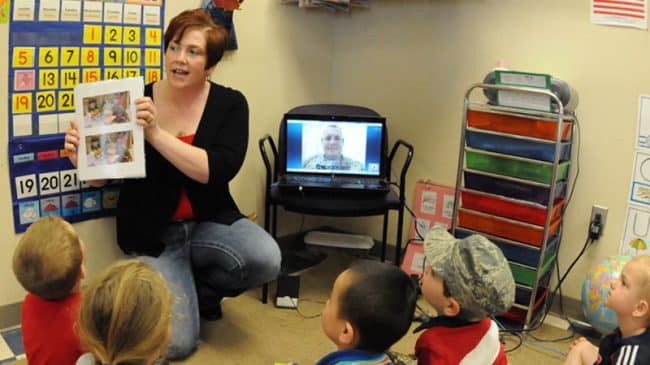Forget California’s $30 billion “wall of debt,” hundreds of billions of dollars in unfunded pension and retiree health care liabilities, and the state’s 8.3 percent unemployment rate. Of all the issues confronting California, state Senate President pro Tempore Darrell Steinberg, D-Sacramento, believes his highest priority is to create “transitional kindergarten,” a pre-kindergarten grade level for 4-year-olds.
“This is at the top of the list. I can’t think of anything more important,” Steinberg said of his recently proposed Kindergarten Readiness Act of 2014.
The bill is really a back-door route toward taxpayer-funded universal preschool that would soon cost California taxpayers at least $1 billion per year, destroy the diverse private preschool market, strip parents of school choices and jeopardize the jobs of many low- and middle-income workers in the child-care industry.
In California we’ve been here before. Voters rejected taxpayer-funded universal preschool for all when film director and activist Rob Reiner got it onto the ballot in 2006. This time, Californians may not have a direct vote, as Steinberg and state legislators look to push the bill through the 2014-15 budget process.
Gov. Jerry Brown recognizes that the state cannot afford Steinberg’s proposal. The governor did not include transitional kindergarten in his newly released state budget. When asked about transitional kindergarten Gov. Brown said, “The budget speaks for itself. … Wisdom and prudence are the order of the day.”
The evidence certainly points to the need for extreme caution when it comes to universal preschool. Transitional kindergarten would replace California’s private parent-driven preschool system with a taxpayer-funded system that would phase in a new “voluntary” pre-kindergarten program for all 4-year-olds. Transitional kindergarten would expand government control over education (an area in which the government’s track-record is notoriously poor), destroy many existing preschools and expand the power of teachers’ unions. Taxpayers would be forced to subsidize pre-kindergarten for middle- and upper class kids, many of who are already in preschool programs at their parents’ expense.
And for what? There is little empirical evidence to demonstrate any lasting educational or socioeconomic benefits of government-run preschool programs. Oklahoma has had a public universal preschool program in place since 1998. It has been held up as a national model by President Obama. Yet, the state’s fourth graders had higher reading scores on the National Assessment of Educational Progress before the program was instituted than they do today. In fact, Oklahoma ranks last in the nation for fourth-grade reading gains since 1992.
Many California schools are already struggling so there is little reason to believe the state could successfully implement another grade level. The 2013 Education Week Research Center’s “Quality Counts” report places California lower than the national average in K-12 achievement. California scored D-pluses on the achievement index that measures public school improvement over time, the state’s current level of success in reading and math, and student performance on Advanced Placement exams and the 2013 National Assessment of Educational Progress.
A new state-run preschool program would also jeopardize the jobs of the thousands workers in California currently employed in early child-care centers. These private child- and day-care centers, which account for around 70 percent of California’s child-care industry, would be put out of business by the public preschool system.
Steinberg’s proposed initiative would try to push today’s non-union preschool teachers into the teachers’ unions. The bill mandates all preschool teachers must obtain bachelor’s degrees and requires all preschool aides to have associate’s degrees. These mandates would effectively unionize preschool teachers while preventing most current child-care workers from working in the public preschools.
Again, it’s important to ask, why? A well-regarded study by University of Virginia researchers found that educational requirements for preschool teachers were unrelated to student gains in learning during pre-kindergarten and didn’t impact the kids’ readiness to begin kindergarten.
California already spends more than $3 billion a year subsidizing preschool for low-income children. Gov. Brown is right: California doesn’t need a new, expensive large-scale government preschool program that would restrict parental choice and subsidize preschool for middle- and upper-income families. Research on Head Start and universal preschool programs have struggled to find any lasting gains from preschool.
If Steinberg’s bill becomes law, California could be headed toward a $1 billion-a-year program that’s great for teachers’ unions but doesn’t benefit kids.
Lisa Snell is director of education at Reason Foundation. This column originally ran in the Orange County Register.

